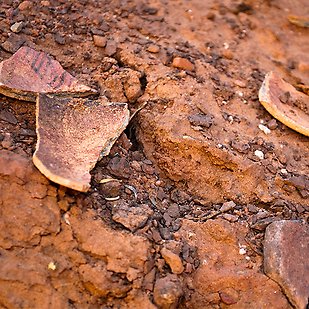Archaeology

Archaeology studies human beings and societies in prehistorical and early historical times through the material remains that they have left behind. It is most important during prehistoric times from which few or no written sources remain. Geographically, the subject mainly focuses on Scandinavia, but also includes perspectives from and comparisons with Europe and other continents.
The de-glaciation occurring c. 12 000 years ago forms a natural timeframe boundary for Scandinavian archaeology. Human beings with a long cultural tradition migrated from the south, and in the favourable Stone Age climate, they developed a subsistence technique built on hunting and fishing. C. 6000 years ago, agriculture made its entrance into Scandinavia from the Near East. In a long-term perspective, this was perhaps the most important change in human history together with metalworking (bronze and iron).
Archaeologists deal with today's larger issues in both practice and theory. This is reflected in the historical development of archaeology, the relationship to nation, colonial and post-colonial societies as well as to cultural identity and ethnicity.
Every year, a large number of archaeological field investigations are performed in Sweden. Many are brought about by construction work, others for the purpose of illuminating scientific questions, but field-archaeology is only one side of archaeology. The finds must be seen in a perspective dependent on time and cultural context. A large and constantly expanding source material increases our knowledge about the way of life in prehistory.
Professionally, archaeologists find niches mainly in museums and heritage management. Main employers include the National Heritage Board and the Historical Museum, county museums as well as county administrative boards and different types of cultural environment units. Archaeology as a subject may also me complementary for professionals working with cultural history in schools, libraries, publishing companies and mass media.
Courses
Bachelor's level, basic courses
Bachelor's level, continuing courses
Master's level courses
Contact
- Course administrator
- info@arkeologi.uu.se
- +46 18 471 20 93
